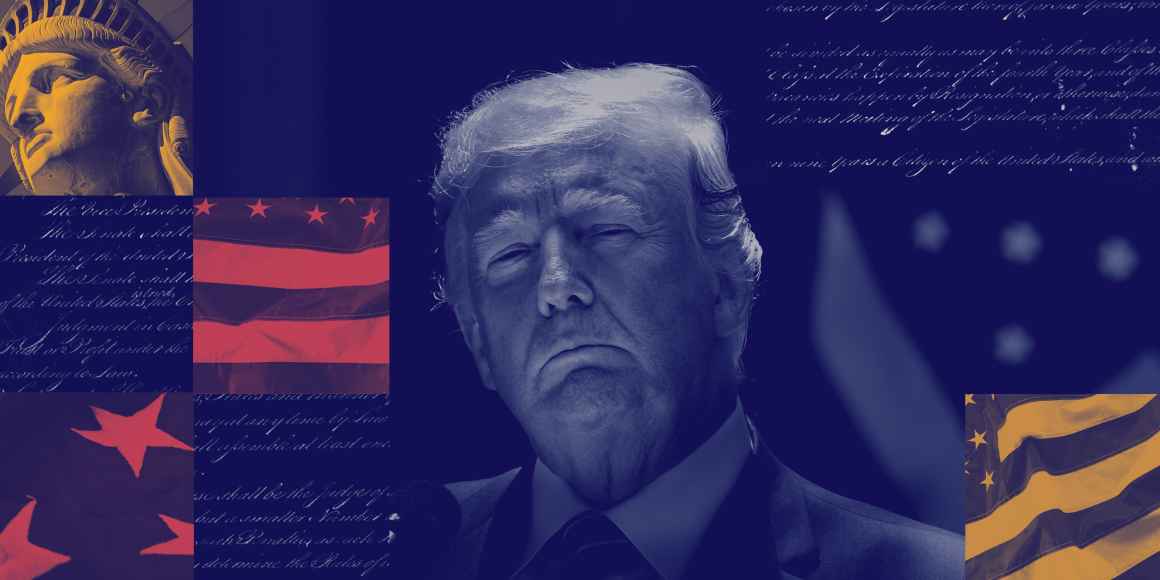Voting Rights
League of Women Voters Education Fund v. Trump
On March 25, 2025, in a sweeping and unprecedented Executive Order, President Trump attempted to usurp the power to regulate federal elections from Congress and the States. Among other things, the Executive Order directs the Election Assistance Commission—an agency that Congress specifically established to be bipartisan and independent—to require voters to show a passport or other citizenship documentation in order to register to vote in federal elections. If implemented, the Executive Order would threaten the ability of millions of eligible Americans to register and vote and upend the administration of federal elections.
On behalf of leading voter registration organizations and advocacy organizations, the 51Ć·˛č and co-counsel filed a lawsuit to block the Executive Order as an unconstitutional power grab.
Status: Ongoing
View Case
Learn About Voting Rights
Featured
U.S. Supreme Court
Aug 2025

Voting Rights
Callais v. Landry
Whether the congressional map Louisiana adopted to cure a Voting Rights Act violation in Robinson v. Ardoin is itself unlawful as a gerrymander.
New Hampshire
Jul 2025
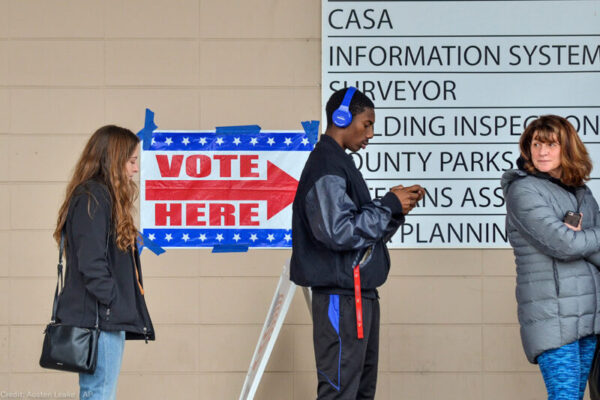
Voting Rights
Coalition for Open Democracy v. Scanlan
This lawsuit challenges HB 1569, a new law that will make New Hampshire the only state to require every person to produce documentary proof of citizenship when they register to vote for both state and federal elections. It also challenges HB 1569’s elimination a preexisting protection for voters—namely, an affidavit option that allowed voters who faced surprise challenges to their eligibility at the polls to swear to their qualifications and cast a ballot. Accordingly, HB 1569 violates the First and Fourteenth Amendments of the U.S. Constitution by placing substantial burdens on New Hampshirites at all stages of the voting process, and will arbitrarily disenfranchise hundreds, if not thousands of qualified voters.
Georgia Supreme Court
Jun 2025

Voting Rights
Eternal Vigilance Action, Inc. v. Georgia
The 51Ć·˛č and partner organizations intervened in this case to represent the rights of voters and voting-rights organizations in a case challenging a number of rules passed by the Georgia State Election Board. We challenged the rule requiring that the number of votes cast be hand counted at the polling place prior to the tabulation of votes. In a critical victory for Georgia voters, in June 2025, the Georgia Supreme Court upheld a lower court’s decision permanently blocking the rule requiring hand counting of ballots at polling places before tabulation — a process widely criticized for risking delays, ballot spoliation, and voter disenfranchisement.
U.S. Supreme Court
May 2025

Voting Rights
Racial Justice
Allen v. Milligan
Whether Alabama’s congressional districts violate Section 2 of the Voting Rights Act because they discriminate against Black voters. We succeeded in winning a new map for 2024 elections which, for the first time, has two congressional district that provide Black voters a fair opportunity to elect candidates of their choosing despite multiple attempts by Alabama to stop us at the Supreme Court. Despite this win, Alabama is still defending its discriminatory map, and a trial was held in February 2025 to determine the map for the rest of the decade.
In May 2025, a federal court ruled that Alabama's 2023 congressional map both violates Section 2 of the Voting Rights Act and was enacted by the Alabama Legislature with racially discriminatory intent.
South Carolina Supreme Court
Jan 2025
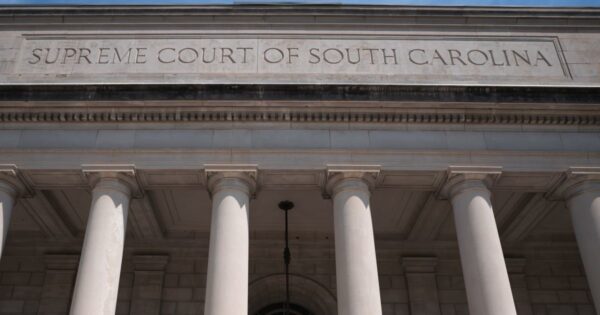
Voting Rights
League of Women Voters of South Carolina v. Alexander
This case involves a state constitutional challenge to South Carolina’s 2022 congressional redistricting plan, which legislators admit was drawn to entrench a 6-1 Republican majority in the state’s federal delegation. Plaintiff the League of Women Voters of South Carolina has asked the state’s Supreme Court to conclude that the congressional map is an unlawful partisan gerrymander that violates the state constitution.
Texas
Oct 2024
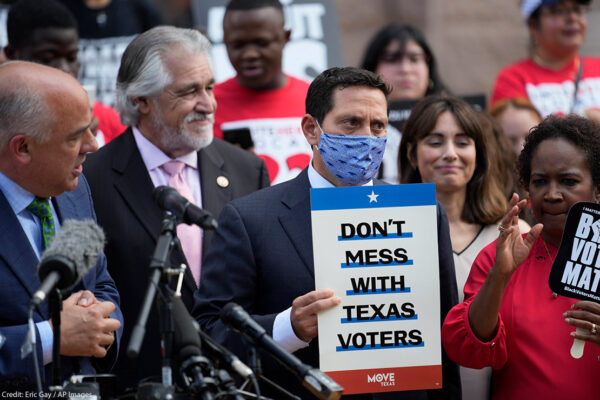
Voting Rights
OCA-Greater Houston v. Paxton
Texas has growing Hispanic and Black populations that helped propel record voter turnout in the November 2020 election. The Texas Legislature responded to this increased civic participation with an omnibus election bill titled Senate Bill 1—SB 1 for short—that targeted election practices that made voting more accessible to traditionally marginalized voters like voters of color, voters with disabilities, and voters with limited English proficiency. Since 2021, SB 1 has resulted in tens of thousands of lawful votes being rejected, and it remains a threat to democracy in Texas.
All Cases
156 Voting Rights Cases
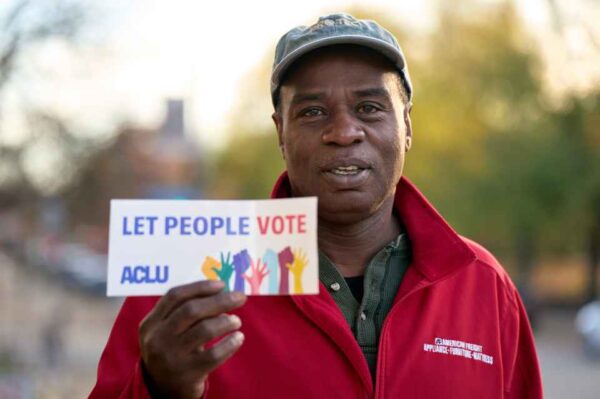
U.S. Supreme Court
Jun 2025
Voting Rights
Republican National Committee v. Genser
Voters in Butler County, Pennsylvania made a mistake in voting their mail ballots in the April 2024 primary election, forgetting to use the required secrecy envelope. Because their mail ballots could not be counted, they went to the polls in Election Day and voted provisional ballots. The County later determined that it would not count their provisional ballots, and the voter’s appealed, arguing that Pennsylvania law requires that when an eligible voter attempts to vote by mail but the mail ballot is rendered void due to some defect like lacking a secrecy envelope, the eligible voter may cast a provisional ballot and have that ballot counted notwithstanding the failed attempt to vote by mail.
Explore case
U.S. Supreme Court
Jun 2025

Voting Rights
Republican National Committee v. Genser
Voters in Butler County, Pennsylvania made a mistake in voting their mail ballots in the April 2024 primary election, forgetting to use the required secrecy envelope. Because their mail ballots could not be counted, they went to the polls in Election Day and voted provisional ballots. The County later determined that it would not count their provisional ballots, and the voter’s appealed, arguing that Pennsylvania law requires that when an eligible voter attempts to vote by mail but the mail ballot is rendered void due to some defect like lacking a secrecy envelope, the eligible voter may cast a provisional ballot and have that ballot counted notwithstanding the failed attempt to vote by mail.
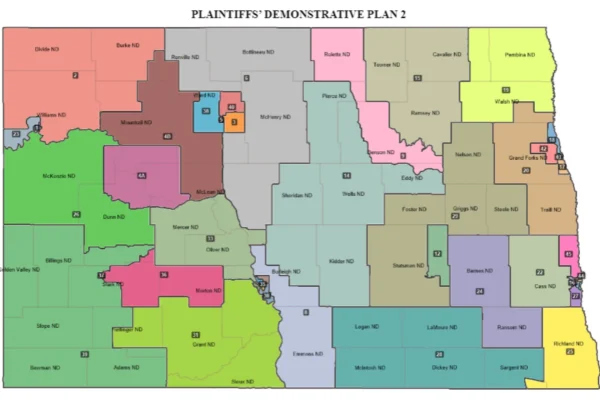
North Dakota
Jun 2025
Voting Rights
Turtle Mountain Band of Chippewa Indians v. Howe (Amicus)
In Arkansas State Conference NAACP v. Arkansas Board of Apportionment, the 8th Circuit became the first federal appeals court to rule that private plaintiffs cannot enforce Section 2 of the Voting Rights Act. In doing so, the court left open the question whether private plaintiffs could enforce Section 2 through an alternative civil rights statute, 42 U.S.C. § 1983. In this case, a divided panel on the 8th Circuit has held that plaintiffs may not use Section 1983, either. If the holding stands, Section 2 of the VRA will be functionally out of reach for voters across the 8th Circuit in Arkansas, Iowa, Minnesota, Missouri, Nebraska, North Dakota, and South Dakota. On behalf of the NAACP Arkansas State Conference and the Arkansas Public Policy Panel, the 51Ć·˛č and 51Ć·˛č of Arkansas has filed a brief supporting the plaintiffs' request that the full Eighth Circuit rehear and correct this decision.
Explore case
North Dakota
Jun 2025

Voting Rights
Turtle Mountain Band of Chippewa Indians v. Howe (Amicus)
In Arkansas State Conference NAACP v. Arkansas Board of Apportionment, the 8th Circuit became the first federal appeals court to rule that private plaintiffs cannot enforce Section 2 of the Voting Rights Act. In doing so, the court left open the question whether private plaintiffs could enforce Section 2 through an alternative civil rights statute, 42 U.S.C. § 1983. In this case, a divided panel on the 8th Circuit has held that plaintiffs may not use Section 1983, either. If the holding stands, Section 2 of the VRA will be functionally out of reach for voters across the 8th Circuit in Arkansas, Iowa, Minnesota, Missouri, Nebraska, North Dakota, and South Dakota. On behalf of the NAACP Arkansas State Conference and the Arkansas Public Policy Panel, the 51Ć·˛č and 51Ć·˛č of Arkansas has filed a brief supporting the plaintiffs' request that the full Eighth Circuit rehear and correct this decision.
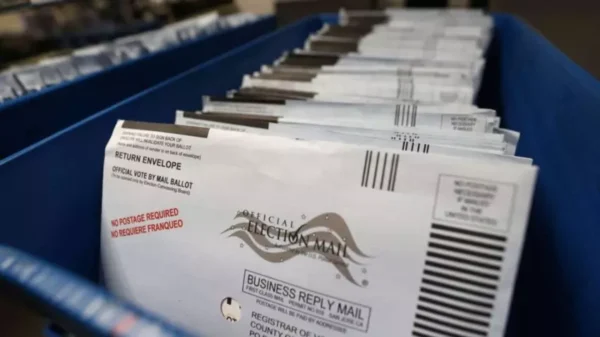
California
Apr 2025
Voting Rights
Issa v. Weber
Congressman Darrell Issa sued to prevent California from counting mail ballots postmarked by election day and received within the following seven days, consistent with California law. If successful, literally hundreds of thousands of Californians will be disenfranchised at each election. The 51Ć·˛č and its three California affiliates have sought to intervene in the case on behalf of the League of Women Voters of California to ensure that California voters are able to have their ballots counted consistent with state procedures.
Explore case
California
Apr 2025

Voting Rights
Issa v. Weber
Congressman Darrell Issa sued to prevent California from counting mail ballots postmarked by election day and received within the following seven days, consistent with California law. If successful, literally hundreds of thousands of Californians will be disenfranchised at each election. The 51Ć·˛č and its three California affiliates have sought to intervene in the case on behalf of the League of Women Voters of California to ensure that California voters are able to have their ballots counted consistent with state procedures.
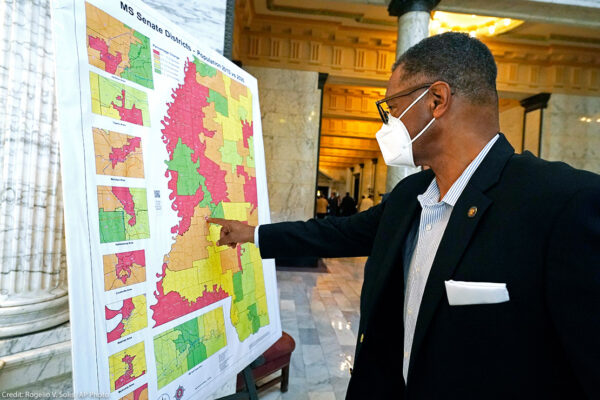
Mississippi
Apr 2025
Voting Rights
Mississippi State Conference of the NAACP v. State Board of Election Commissioners
Mississippi has a growing Black population, which is already the largest Black population percentage of any state in the country. Yet. Black Mississippians continue to be significantly under-represented in the state legislature, as Mississippi’s latest districting maps fail to reflect the reality of the state’s changing demographics. During the 2022 redistricting process, the Mississippi legislature refused to create any new districts where Black voters have a chance to elect their preferred representative. The current district lines therefore dilute the voting power of Black Mississippians and continue to deprive them of political representation that is responsive to their needs and concerns, including severe disparities in education and healthcare.
Explore case
Mississippi
Apr 2025

Voting Rights
Mississippi State Conference of the NAACP v. State Board of Election Commissioners
Mississippi has a growing Black population, which is already the largest Black population percentage of any state in the country. Yet. Black Mississippians continue to be significantly under-represented in the state legislature, as Mississippi’s latest districting maps fail to reflect the reality of the state’s changing demographics. During the 2022 redistricting process, the Mississippi legislature refused to create any new districts where Black voters have a chance to elect their preferred representative. The current district lines therefore dilute the voting power of Black Mississippians and continue to deprive them of political representation that is responsive to their needs and concerns, including severe disparities in education and healthcare.
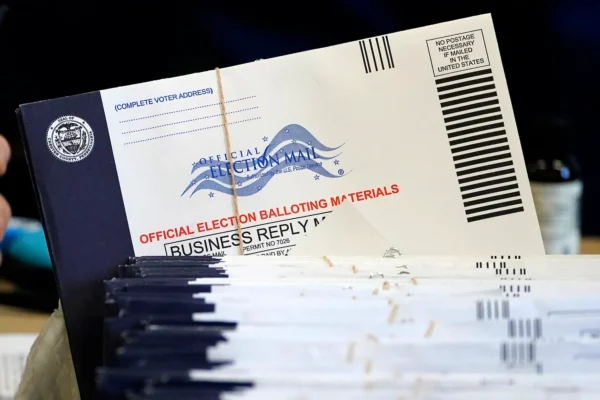
Pennsylvania Supreme Court
Mar 2025
Voting Rights
Baxter v. Philadelphia Board of Elections
Eligible Philadelphia-area voters who submitted mail ballots in the September 17, 2024 special election only to have their votes set aside because they omitted or miswrote the correct date on their outer return envelope – even though the date is not used for any purpose – sued to have their votes count. Plaintiffs urge the courts to rule that enforcing the irrelevant envelope-dating requirement to disenfranchise eligible voters violates the Pennsylvania Constitution's Free and Equal Elections Clause.
Explore case
Pennsylvania Supreme Court
Mar 2025

Voting Rights
Baxter v. Philadelphia Board of Elections
Eligible Philadelphia-area voters who submitted mail ballots in the September 17, 2024 special election only to have their votes set aside because they omitted or miswrote the correct date on their outer return envelope – even though the date is not used for any purpose – sued to have their votes count. Plaintiffs urge the courts to rule that enforcing the irrelevant envelope-dating requirement to disenfranchise eligible voters violates the Pennsylvania Constitution's Free and Equal Elections Clause.
